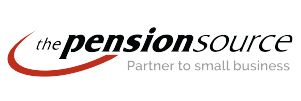When Plan Sponsors are asked to provide company and employee census information for a recent plan year, the details being collected affect the contributions that must be calculated and funded as well as which compliance tests the plan must satisfy. The same questions are asked year after year because changes in the company affect the plan a great deal. Information collected may include:
Employee census: Details about all employees on payroll must be provided, whether they are full time, part time or only worked a few weeks.
- Employee information allows your retirement plan professional to determine who met the plan eligibility requirements, who is required to be included in compliance testing and who is eligible to receive employer contributions being funded for the plan year.
- If your payroll information is collected per payroll, you may be asked to confirm its accuracy at year end to be sure that no payrolls were missed and that, for calendar year compensation years, the amounts tie to the Form W-3.
- With the new rules for Long Term Part Time (LTPT) employees, it is very important to track hours worked for part time employees to determine who falls into this category.
- If you are an owner only plan (sole proprietor and spouse, or partnership and spouses of partners), be sure to reach out to your retirement plan professional if you are considering hiring employees. Depending on the plan provisions, even seasonal or short-term hires could have an unexpected impact.
Ownership % and other businesses owned by those owners: Not only does it matter who owns a part of your business, how much they own makes a difference as well.
- Ownership of more than 5% means they are a Highly Compensated Employee (HCE) for compliance testing purposes, and this may affect the contribution amount they are able to receive. If the spouse of the owner is also employed, the ownership attribution applies to them as well. This applies to parents, children, and grandparents of 5% owners.
- If the owners of your company have ownership in another company, it could be a controlled group or affiliated service group situation and the employees of that other company may need to be included in the compliance testing for your qualified plan.
- Changes in ownership should be communicated as they are being planned, rather than after the change takes effect. For example, if the owners plan to retire at year end with their children taking over, the compliance testing for the plan could be affected by the change in ages of the HCEs. There are ways to make this a smooth transition with plan provision changes if discussed in advance.
ERISA fidelity bond: The amount in place for your plan at year end is requested to determine if it is sufficient or needs to be increased.
- The amount of the bond is reported on the Form 5500 filed for the plan year and the required amount is 10% of plan assets. Certain exceptions apply.
- For the 1st year of the plan, the amount of coverage is to be based on 10% of the expected contribution amount for the year.
This newsletter is intended to provide general information on matters of interest in the area of qualified retirement plans and is distributed with the understanding that the publisher and distributor are not rendering legal, tax or other professional advice. Readers should not act or rely on any information in this newsletter without first seeking the advice of an independent tax advisor such as an attorney or CPA.
©2023 Benefit Insights, Inc. All rights reserved.
